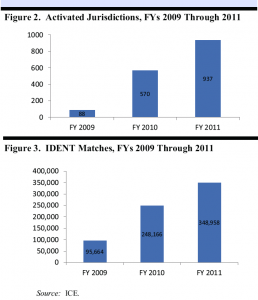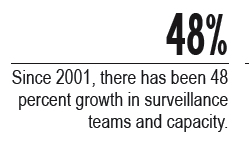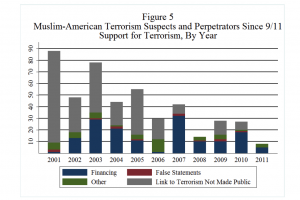Data Mining Adoptive Parents along with Suspected Terrorists
I’m a sucker for groups of adoptive kids. Like the time when a group of Michigan families with adopted Ethiopian kids had a rambunctious reunion at my favorite Ethiopian restaurant, with the owner catering to the kids like a grandparent. Or the time I shared a restaurant in Guangzhou with a bunch of French families who had just picked up their baby daughters; they somehow expected these girls who had lived in Chinese orphanages to immediately understand how to act like proper French kids.
There’s a lot that can be abusive in international adoptions, but when I see joyful gatherings like these, I’m awestruck by the faith such parents have in our common humanity.
Which is why I’ve been obsessing by one of the implications of this post. As I noted, DHS’s Inspector General helpfully explained that among all the other people in DHS’ IDENT database are the American citizens who had adopted internationally.
Individuals with fingerprints in IDENT include persons with an immigration history, such as aliens who have been removed but have reentered the country, immigration visa applicants, legal permanent residents, naturalized citizens, and some U.S. citizens.
IDENT includes two categories of U.S. citizens:
- Citizens who have adopted a child from abroad (which involves U.S. Citizenship and Immigration Services), participated in a trusted traveler program, or may have been fingerprinted by immigration officials for smuggling aliens or drugs across U.S. borders;
- Individuals who were not citizens at the time that their fingerprints were collected, but subsequently became citizens through naturalization, legal permanent residency, or immigration.[my emphasis]
Now, we can be pretty sure that when NCTC decided it needed to acquire US agency databases and data mine them with their existing terrorism databases, complete with the US person data they included, the IDENT database–the primary purpose of which is to track people who’ve come through the immigration system–was one of the first databases they went after.
Which is another way of saying the US persons in the IDENT database should assume they’ll also be in NCTC’s databases for five years. Including those parents who adopted children from China or Ethiopia or Guatemala or Romania.
“Well, if they’ve done nothing wrong they don’t have anything to be worried about.”
Perhaps. Except that the kind of people who adopt kids internationally may also tend to have reason for a significant number of international connections, whether because of religious faith, an effort to establish some tie to their child’s native country, or a comfort with international travel.
There are a lot of people whose biometric data shouldn’t be mined along with a bunch of terrorist suspects. At the top of that list, though, are families whose primary interaction with Bureau of Customs and Immigration Services entailed adopting a baby from another country.






